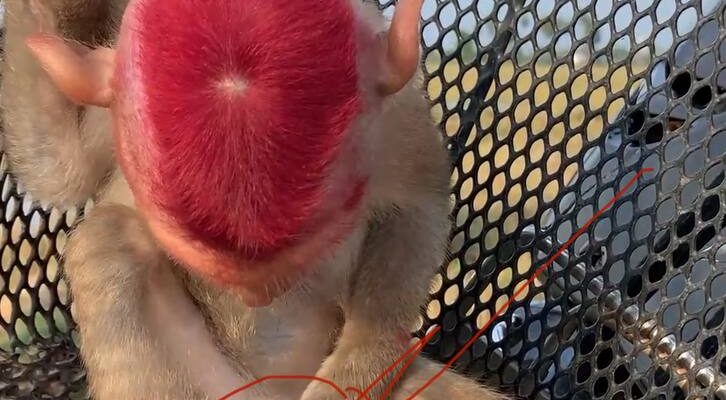In the complex world of primate behavior, some actions may seem puzzling or even inappropriate by human standards. One such behavior is genital rubbing observed in certain monkey species, especially during moments of stress, fear, or anxiety. While this might raise eyebrows at first glance, it serves a deeper biological and psychological function. Understanding this behavior gives us fascinating insights into the emotional lives of monkeys and their coping mechanisms.
Self-Soothing and Anxiety Regulation
When monkeys experience fear—whether from a predator threat, social conflict, or unfamiliar surroundings—they often display self-directed behaviors. These include scratching, grooming, or in some cases, genital rubbing. Rather than being purely sexual, genital rubbing in these contexts is largely a self-soothing behavior.
Much like how humans may bite their nails, tap their fingers, or pace when anxious, monkeys use physical actions to manage their emotional states. Rubbing their genitals stimulates the release of endorphins, which are natural chemicals in the brain that reduce pain and promote a sense of well-being. This can help calm the animal and reduce physiological stress responses such as increased heart rate and cortisol levels.
Neurobiological Perspective
From a neurobiological standpoint, the behavior taps into the brain’s reward and comfort systems. The genital area is rich in nerve endings, and touching or stimulating this region can produce calming sensations. In monkeys, this may serve a dual purpose: temporarily reducing fear and regaining control over an emotionally destabilizing situation.
Researchers studying captive and wild primates have noted that genital rubbing increases during moments of social tension or fear, such as after a fight or when a dominant individual approaches. It’s a subtle way for subordinate or stressed monkeys to regulate their emotions without drawing too much attention or escalating conflict.
Social and Evolutionary Context
Interestingly, genital rubbing isn’t restricted to solitary behavior. In some primate species, such as bonobos, similar actions are used in social bonding or reconciliation. Although monkeys typically engage in this behavior alone when scared, the underlying mechanism could have evolved from or contributed to broader social functions.
This suggests a shared evolutionary root with humans. Just as we seek comfort in touch—hugging a friend, holding a loved one’s hand, or even petting an animal—monkeys may instinctively turn to physical sensations to regain emotional balance.
Misunderstood, but Natural
To human eyes, rubbing one’s genitals may seem inappropriate, especially in public. However, in the animal kingdom, behaviors that seem odd to us often serve practical survival functions. For monkeys, this behavior is a way to cope with stress, not a display of sexual arousal. It’s important not to anthropomorphize or judge these actions by human moral standards.
Conclusion
Monkeys rubbing their genitals when scared is a natural, instinctive behavior rooted in stress relief and emotional regulation. Far from being crude or solely sexual, it reflects the sophisticated emotional toolkit these animals possess. Understanding such behaviors helps deepen our appreciation of primate intelligence and their complex emotional worlds—and reminds us how much we still have to learn about the minds of our closest animal relatives.



